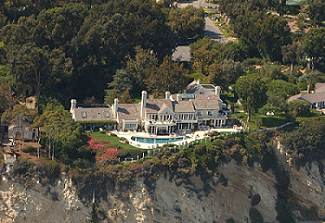By: Chris Warren
What would you think if you were on an out of town trip, and upon returning to your hotel after picking up dinner you were stopped in the lobby and told you were not allowed to bring outside food into the facility? They proceed to explain that all guests are required to eat only in the hotel restaurant because outside food might make yourself or others sick. Would you be cool with that? Buried in the business news hardly anyone is paying attention to amid holiday excitement is an effort by the Marriott Hotel chain that isn’t too far off from my hypothetical food embargo.
What I’m calling Marriott out on is their petition to the Federal Communications Commission for approval to install equipment that blocks guests from accessing the internet via their personal cellphones, specifically, using cellphones as a portable wifi “hot spot” to avoid paying daily fees to access the hotel’s wifi.
It will come as a surprise to absolutely no one that Marriott is wrapping their proposal in the warm, comforting language of good customer service. They claim personal wireless gadgets can be used by hackers to bust into the hotel network and cause all sorts of evil. We are expected to believe that by forcing guests onto the house network Marriott is graciously doing the them a favor. And by the way, all this comfort and safety costs only $14.95/day for a “basic” connection, or $19.95 for an upgraded version that allows downloading large files and video streaming.
If a little cha-ching! cash register sound just went off in your head, you correctly tapped into the real motive for Marriott’s FCC petition. There is nothing wrong with a business offering a value-added service to pull in more revenue, and I don’t even necessarily have a problem with them charging obnoxiously usurious rates for it. But instead of acting as a free market fair player, Marriott wants to coerce revenue from guests by actively preventing them from using their own, separately contracted internet connections. In essence, Marriott wants legal permission to sabotage the competition.
This scam is only in the planning stages and Marriott is already losing corporate goodwill. Consumers are sounding off on social media and internet message boards and –another surprise!– they are are not exactly gushing with gratitude for Marriott’s effort to “protect” them from internet predators. After all, if Marriott was truly concerned about protecting their network, they would be focusing effort on securing it instead of looking for ways via a feigned worry about cyber villains to prevent honest paying guests from using their personal devices. The odds of Marriott getting what they want from the FCC is very close to zero, but if they do prevail, it’s a sure bet that other businesses (and not just hotels) will also want to shake the money tree. Before those other businesses get any brilliant ideas, they may first want to take stock of Marriott’s fully deserved public relations train wreck and seriously consider if maybe, just maybe, telling guests what internet connections they can use is as silly and controlling as having food police in the lobby.
